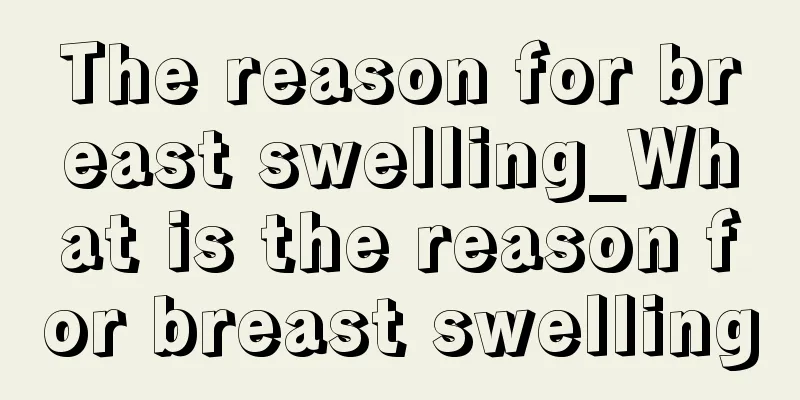An article to understand the "dangerous" foods in life

|
Author: Chen Zhou Shanghai Changhai Hospital Reviewer: Mei Xiaobin, Chief Physician, Shanghai Changhai Hospital In today's society where food choices are abundant, we must know which foods are beneficial to the human body and which foods are harmful to the human body or need to be restricted. Today we will talk about the "not so friendly" foods in our lives. Figure 1 Copyright image, no permission to reprint 1. Red meat and processed meat Red meat: mainly refers to meat that is red before cooking, such as pork, beef, lamb and all other mammalian meat. Processed meat: Currently, most processed meat on the market is pork, beef or poultry products, such as various sausages, ham, smoked meat, beef jerky, canned meat, packaged roast chicken, etc. Current studies have shown that consuming more red meat and processed meat increases the risk of multiple chronic diseases such as type 2 diabetes, stroke, cardiovascular disease, and increases the incidence of colorectal cancer. Therefore, the International Agency for Research on Cancer currently classifies processed meat as a Class 1 human carcinogen. The so-called Class 1 carcinogen means that there is sufficient evidence to clearly indicate that it causes cancer. The reason why red meat is "dangerous" is that it contains a high amount of saturated fat, which is a type of fat that is not good for the human body and increases the risk of chronic diseases. But red meat is not completely useless. It is also a major source of high-quality protein and is rich in iron, which is the main raw material for blood production. Therefore, the intake of red meat is "restricted" rather than "prohibited", and it can be replaced with white meat such as fish, shrimp, and poultry. Processed meat may contain a lot of food additives or a lot of salt, sugar or trans fatty acids to preserve freshness and prevent spoilage. Long-term consumption of processed meat may pose a risk to human health, so it should be eaten as little as possible or not at all. 2. High-salt foods High-salt foods are mostly processed foods that have a lot of salt added to them, such as various pickled foods, salted fish, luncheon meat, instant noodles, pickles, pickled vegetables, fast food, and condiments such as salad dressing, ketchup, soy sauce, and monosodium glutamate. Regarding the salt content, we should learn to read the food nutrition label and look at the sodium content and proportion. For example, many common noodles on the market have a very high sodium content, and the nutrient reference value is mostly 30% to 40%, which means that 1/3 of the noodles is made up of salt. There are many dangers of long-term high-salt diet. High salt intake is a recognized risk factor for hypertension, and it can also cause many chronic diseases such as diabetes, kidney disease, cardiovascular and cerebrovascular diseases! At present, most dietary guidelines in the world recommend that adults consume no more than 5g of salt per day, while the average daily salt intake of urban and rural residents in my country is about 12g, which is far more than the recommended amount in the dietary guidelines. Therefore, we should try to avoid eating high-salt processed foods. 3. High-sugar foods or sugary drinks Like high-salt foods, most high-sugar foods are processed foods, and a lot of sugar is also artificially added, such as various desserts, bread, ice cream, popsicles, chocolate and other candies, as well as all the sweet drinks you can buy, and condiments such as honey, white sugar, brown sugar, and rock sugar. Sugary drinks include various cola, fruit juice drinks, sports drinks, and energy drinks, which are also key factors leading to weight gain and obesity, and increase the risk of high blood pressure, diabetes, gout, and metabolic syndrome. Therefore, it is best not to drink or drink less sugary drinks, and it is encouraged to drink more water. Sugar is different from salt. Salt is something we need to eat every day, but we need to control the amount. Sugar is not essential in our diet, which means that if you don't eat a little sugar, it won't have any effect on your body, because the carbohydrates in various foods can eventually be converted into sugar for the body to use. We eat sugar mostly because it is a food that makes people happy. Regarding sugar intake, it is recommended that adults do not exceed 50g per day, and it is best to control it below 25g. In life, it is best to eat high-sugar foods in moderation and try to drink less or no sugary drinks. Figure 2 Copyright image, no permission to reprint 4. Alcoholic Beverages Alcohol is a clear Class 1 carcinogen. Drinking a small amount of alcohol can also increase the risk of breast cancer. Drinking moderately or heavily can increase the risk of various cancers. However, drinking in moderation may have certain benefits for maintaining cardiovascular health. There are pros and cons, which is more subtle. Therefore, most dietary guidelines limit alcohol consumption, and adults should not drink more than 15g of alcohol per day (15g of alcohol is about 450ml of beer, 150ml of wine, and 30-50ml of liquor). Special note: Children, teenagers, pregnant women, patients with chronic diseases, and those in special situations such as driving or after taking oral medications should not drink alcohol. 5. Coffee and Tea Both coffee and tea contain a stimulant substance, caffeine. The benefits of caffeine are that it can refresh the mind and improve athletic performance; but it can also bring some disadvantages, such as headaches, anxiety and insomnia. Of course, in addition to caffeine, natural coffee and tea also contain a variety of chemical components that may be beneficial to health, such as polyphenols, catechins and flavonoid antioxidants. Therefore, the existing evidence is not enough to prove whether coffee and tea should be promoted or opposed. For most adults, consuming no more than 400 mg of caffeine per day (about 2 cups of coffee or tea) does not seem to be harmful. However, many coffees and black teas contain sugar and creamer, and drinking too much is not good for health. |
<<: JD Power: iPad user satisfaction is 93.6%, once again topping the list
>>: Five taboos in mobile gambling game development
Recommend
In the high-incidence season of cerebral infarction, some knowledge you should know
This is the 4720th article of Da Yi Xiao Hu Cereb...
What issues should be paid attention to during hysterography?
Hysterography is not the name of a disease, but a...
Picture of pregnant woman sleeping on the left side
Sleep is very important for pregnant women during...
Is it better for pregnant women to drink skim milk or whole milk? How to drink whole milk
Milk contains many vitamins, among which fat-solu...
Can pregnant women eat raw dates?
During pregnancy, there are many foods that pregn...
What changes will occur in your body if you eat and drink heavy-tasting food for a long time?
The pace of life is fast nowadays, and many peopl...
What are the ways for women in their forties to lose weight?
After getting married and having children, the sk...
What color are the stamens of winter jasmine? How to plant winter jasmine
Winter jasmine is a flower that welcomes spring. ...
Pregnancy breast lumps
After a woman becomes pregnant, in addition to he...
Why do rust spots grow on the leaves of Ficus microcarpa? How to remedy rust spots on the leaves of Ficus microcarpa
Speaking of fiddle-leaf fig, I believe many peopl...
Why does vaginal itching occur one month after delivery?
Mothers often have vaginal discharge after giving...
How long does it take for breast pain to develop during pregnancy?
After the baby is born, breasts play an indispens...
4 outrageous folk remedies for treating hemorrhoids. After trying them, my anus started bleeding...
Some time ago, Yue Miaojun saw a cruel case on th...
[Fat Bear Science] Is cancer contagious? Is "family cancer" common? All the knowledge about cancer transmission in one article
In recent years, cancer has attracted more and mo...
What is the reason for the ovulation test paper showing a weak positive
In order to get pregnant better, many couples wil...









